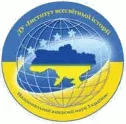ВІЙНИ ІСТОРИЧНОЇ ПАМ’ЯТІ: СУСПІЛЬНІ СПОНУКИ
##plugins.themes.bootstrap3.article.main##
Анотація
Стаття є дослідженням війн історичної пам’яті. Розглядається процес усе зростаючого використання історичного минулого в суспільному житті сьогодення. Історія стала політичним інструментом, за допомогою якого легітимізується чи делегітимізується та чи інша соціально-політична система. У низці країн були прийняті закони про покарання тих, хто пише «неправильно». У міжнародних відносинах спалахнули справжні «війни історичної пам’яті». Набирає сили етнізація історії та утвердження наративів про власну націю як виключно «жертву історії», що вимагає до себе особливого ставлення й належної компенсації. Зокрема, ініціатори проголошення «війн історичної пам’яті» в різних країнах не одні і ті ж. Часто війни пам’яті проголошуються на найвищому рівні – в них беруть участь офіційні особи, включаючи глав держав, які «дають відкоша» і «ставлять на місце неправих», нагадують про незаживаючі рани нації й про страшні злочини сусідів. Об’єктивно назріває питання про суспільні спонуки «війн історичної пам’яті». Автори поділяють точку зору, що головна причина полягає у загостренні протистояння між Росією і колективним Заходом. Історична політика, яка набула вигляду «війн історичної пам’яті», є скоріше симптомом, а не причиною цього протистояння. Проаналізовано, що політизація історичної пам’яті досить часто призводить до негативних наслідків, і легкого виходу із цієї ситуації не проглядається. І важко знайти ту вирішальну ланку, взявшись за яку можна було б витягнути увесь ланцюг назрілих проблем. Тим часом слід визнати, що полеміка навколо ролі Радянського Союзу у Другій світовій війні не виникла знічев’я, вона загострилася на фоні посилення напруги між Сходом і Заходом. Узагальнюючи еволюцію «війн історичної пам’яті» до жорсткого загострення, Марлен Ларюель зазначав: «Я інтерпретую війни за історичну пам’ять між Польщею, прибалтійськими державами і Україною, з одного боку, і Росією – з другого, як «стратегічний наратив», пов’язаний із виключенням Росії із Європи або включенням в неї».
Завантаження
##plugins.themes.bootstrap3.article.details##
Посилання
“Olimpiada zhertv istoricheskoy nespravedlivosti” [“Olympics of victims of historical injustice”]. [Online]. Available from: https://globalaffairs.ru/articles/olimpiada-zhertv/ [In Russian].
Lukyanov, F. & Miller, A. “Lekarstvo ot natsional’nogo nartsissizma” [“The cure for national narcissism”]. [Online]. Available from: https://globalaffairs.ru/print/number/Lekarstvo-ot-natsionalnogo-nartcissizma–17749 [In Russian].
Tekst toy samoy rezolyutsii Yevroparlamenta, kotoraya vozmutila putinskikh rossiyan [The text of the very resolution of the European Parliament that outraged Putin’s Russians]. [Online]. Available from: https://ru-polit.livejournal.com/19280948. html [In Russian].
Adorno, T. (2005). Chto znachit “prorabotka proshlogo”? [What does «elaboration of the past» mean?] Zhurnal’nyy zal. Neprikosnovennyy zapas [Magazine hall. Untouchable stock], 2-3, (40-41). [Online]. Available from: http://magazines.russ.ru/nz/2005/2/ado4.html [In Russian].
Calhoun, K. Teorii modernizatsii i globalizatsii: kto i zachem ikh pridumyval [Theories of modernization and globalization: who and why invented them]. [Online]. Available from: http://www.inop.ru/files/calhoun.doc [In Russian].
Parizhskaya khartiya dlya novoy Yevropy (Parizh, 21 noyabrya 1990 g.) [Paris Charter for a New Europe (Paris, November 21, 1990)]. [Online]. Available from: http://constitution.garant.ru/act/right/megdunar/2541028 [In Russian].
Spil’na zayava Prezydentiv Ukrayiny i Respubliky Pol’shcha “Do porozuminnya i yednannya”. Joint statement of the Presidents of Ukraine and the Republic of Poland “Towards understanding and unity”. [Online]. Available from: https://zakon.work.gov.ua/laws/show/616_005 [In Ukranian].
Pro Zayavu Verkhovnoyi Rady Ukrayiny u zv”yazku z ukhvalennyam Senatom i Seymom Respubliky Pol’shcha postanov vid 7 lypnya 2016 roku ta 22 lypnya 2016 roku shchodo otsinky pol’s’ko-ukrayins’koho konfliktu v roky Druhoyi svitovoyi viyny [On the Statement of the Verkhovna Rada of Ukraine in connection with the adoption by the Senate and Sejm of the Republic of Poland of resolutions of July 7, 2016 and July 22, 2016 on the assessment of the Polish-Ukrainian conflict during World War II]. [Online]. Available from: https://zakon.rada.gov. ua/laws/show/1507-19 [In Ukranian].
Brzezinski, Z. (2010). Vid nadiyi do vidvahy. Otsinka zovnishn’oyi polityky Obamy [From hope to courage. Obama’s foreign policy assessment]. Den’ [Day], 19 Jan. p. 7. [In Ukranian].
Lukyanov, F. Pochemu voyny pamyati budut obostryat'sya i chem eto grozit ES i Rossii? [Why will the memory wars intensify and what does it threaten the EU and Russia?]. [Online]. Available from: https://globalaffairs.ru/articles/pochemu-vojny-pamyati-budut-jbostryatsya-i-chem-eto-grozit-es-i-rossii [In Russian].
Wallerstein, I. (2006). Mirosistemnyy analiz: vvedeniye [World system analysis: an introduction]. Moskva: Izdatel’skiy dom «Territoriya budushchego»Izdatel'skiy dom “Territoriya budushchego”. [In Russian].
Castells, M. Informatsionnaya epokha: ekonomika, obshchestvo i kul’tura [The information age: economics, society and culture]. [Online]. Available from: http://www.gumer.info/bibliotek_Buks/Polit/kastel/09.php [In Russian].

